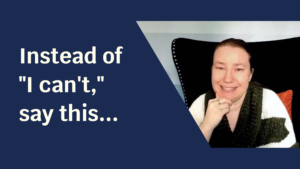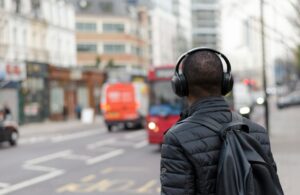When rest is stressful
If you’re in autistic burnout, I’m guessing you don’t have much energy to do the things that might help you feel better, like resting. But what if it’s even worse than that? What if your inner critic is actively scolding you and stressing you out whenever you try to get some rest?
This is for you if:
- You’ve heard the advice to rest but scoff at how easy people make that seem.
- You desperately want to rest, but have a hard time letting yourself.
- Your inner critic keeps you stressed even when you’re supposedly relaxing—especially because you’re relaxing.
- You rest all the time, but keep thinking about all the things you should be doing, or need to do, and it doesn’t seem to be doing you much good.
I’ve experienced all of these, often for months or years at a time, and have found that it is not enough to simply rest. I only get energy back when it is guilt-free rest.
When the rest is laced with guilt, there is some benefit in that I’m not doing things that drain more energy, but I’m not getting any back, either.
About guilt
The guilt-free part is key. While you’re in burnout, you may not be doing as much as you used to, but if you’re also calling yourself lazy, unproductive, a failure, etc, or fretting about your future, the stress of that cancels out much of the restorative benefit of the rest.
It is reasonable and appropriate to feel guilt when we have done something harmful. However, our society teaches us that far more things are a matter of right and wrong, good and bad, then actually have anything to do with hurt or harm.
For example, here are four statements. Do any of them hit a little too close to home?
- You are a bad housekeeper if you don’t do the dishes every day.
- You are a terrible parent if you don’t drive your kids to multiple activities.
- You are a failure if you don’t have a thriving career before age whatever.
- You are wasting your life if you don’t save the world.
Now I would invite you to try something that might be difficult or uncomfortable—but you are good at doing difficult and uncomfortable things, and this one might be useful. Pick one of those statements, or your own similar statement, and ask yourself if it is True. Can you be absolutely certain that it is True?
Where this came from
Here’s something that I have found to be true in my own journey. The things we were taught growing up are a huge collection of helpful and unhelpful stories that were made up by people trying to get by in a broken world.
The people who came before us, our parents and caregivers, grandparents and ancestors, were dealing with their own versions of broken worlds, traumas, injustices, unfair systems, broken families, their own traumatized and unhealthy caregivers. They each made sense of it as best they could with limited skills and resources.
Some of the lessons and stories they learned were helpful at the time, in the circumstances that existed then and which have since changed. Some were unhelpful even back then, but it was the best they could do. Some were healthy and wise intergenerationally. And a mix of all of those were passed down to us.
Keep what is helpful
Not everything we learned is true or helpful or healthy. And I don’t honor those who went before me, or make a better future, by continuing the patterns that do harm.
I consider it harm to call myself lazy, pathetic, a failure, or a waste of space when I am too tired to do something and need rest. Even when the thing is good and even when I want to do it, I will not be able to do it if I don’t take care of myself, and taking care of myself is not lazy or pathetic or failing. It is life-giving. It enables me to do more later.
Questioning the stressful and critical thoughts that come up when you give yourself the gift of rest can slowly, gradually, sometimes uncomfortably, separate them from moral judgments and guilt, and give us freedom to make more useful choices.
By the way, I highly recommend The Work of Byron Katie as a framework for questioning the stories we’ve been taught to believe.
Because when resting is a less stressful experience, you will get better quality rest that restores more of your energy, so you can do the other things that will help you get all the way out of burnout and stay out.
So you will have the energy to be there for your kids, to continue your career in sustainable ways, to make the world a better place, and even, when necessary, to do the dishes.




